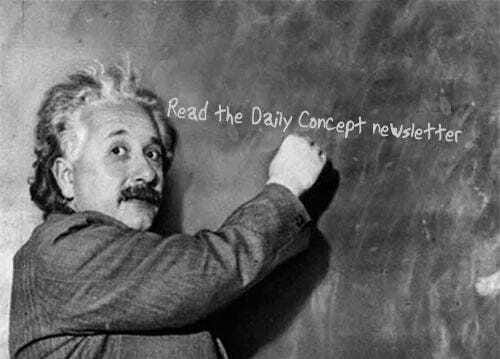- The Daily Concept
- Posts
- 🤔 What is extended mind theory?
🤔 What is extended mind theory?
& how can we use physical tools to help us think?

What does it mean to think about something?
Does all thinking happen in your brain? 🧠
Not if you believe in the Extended Mind theory.
According to this theory:
Our “mind” isn’t just limited to our brains — it also includes external tools that we use to help us think and act in the world.

This theory challenges how we understand human cognition, consciousness, and even personal identity.
It may also help us learn ways to think better.

What is an extended mind?
The “extended mind theory” was developed by British philosophers Andy Clark and David Chalmers in a 1998 essay.
They argue against the idea that our mind is entirely contained within our brain.
Instead, they claim that thinking extends beyond our biological boundaries into the environment we interact with.

If thinking processes, like remembering things (with a calendar) or problem-solving (with a calculator or computer), can happen outside our brains…
Does that mean our minds are “out there” too?
Clark and Chalmers think so.
According to Clark:
“The mind extends into the environment, and the environment extends into the mind.
The boundaries between internal cognitive processes and external scaffolding are more porous than we typically imagine.”

How could our minds be extended?
For much of human history, people believed that the process of thinking happens entirely in the brain.
Clark and Chalmers argue that there are many ways that humans “think” by processing information outside of our heads.

Think about when a mathematician scribbles equations on a chalkboard to solve a problem.
Didn’t the chalkboard and chalk help them to solve the problem?

If you think about it, we're constantly offloading mental tasks onto our environment.
We use:
calendars
calculators
computers & smartphones
These things help us process and store information.
The extended mind thesis proposes that where information processing happens is less important than the role it plays in the thinking process.
So, if something outside of us is doing some of the work of processing our thoughts, isn’t it part of our minds?
As University of Colorado professor Robert Rupert said:
"Extended cognition is not about simply using tools, but about how those tools become integral to our cognitive processes, fundamentally altering how we think and perceive."
How can we extend our minds?
Even if you’re unconvinced of the extended mind theory, the principle of extended cognition is helping people think and learn better.
Social media entrepreneur & author Tiago Forte is known for helping people build a “second brain.”

His objective is to help humans live less stressful inner lives by externalizing the tasks of storing, recollecting, and processing information.
Throughout history, people have used tools like commonplace books (which we’ve covered in a previous newsletter) to help them remember & track ideas.
And in the 21st century, digital technologies are giving us new resources for offloading mental tasks.

These include:
Digital memory externalization tools
Collaborative thinking platforms
Visualization software
AI-based brainstorming and idea generation platforms
As the amount of information available to humans continues to increase, problems such as information overload are likely to become more widespread.
Augmenting our cognitive processes with these sort of other tools may provide new ways to reduce these kinds of modern burdens.
Offloading the tasks of storing and processing information could reduce productivity anxiety and live more satisfying and creative lives.
Just think about it.
ART OF THE DAY
